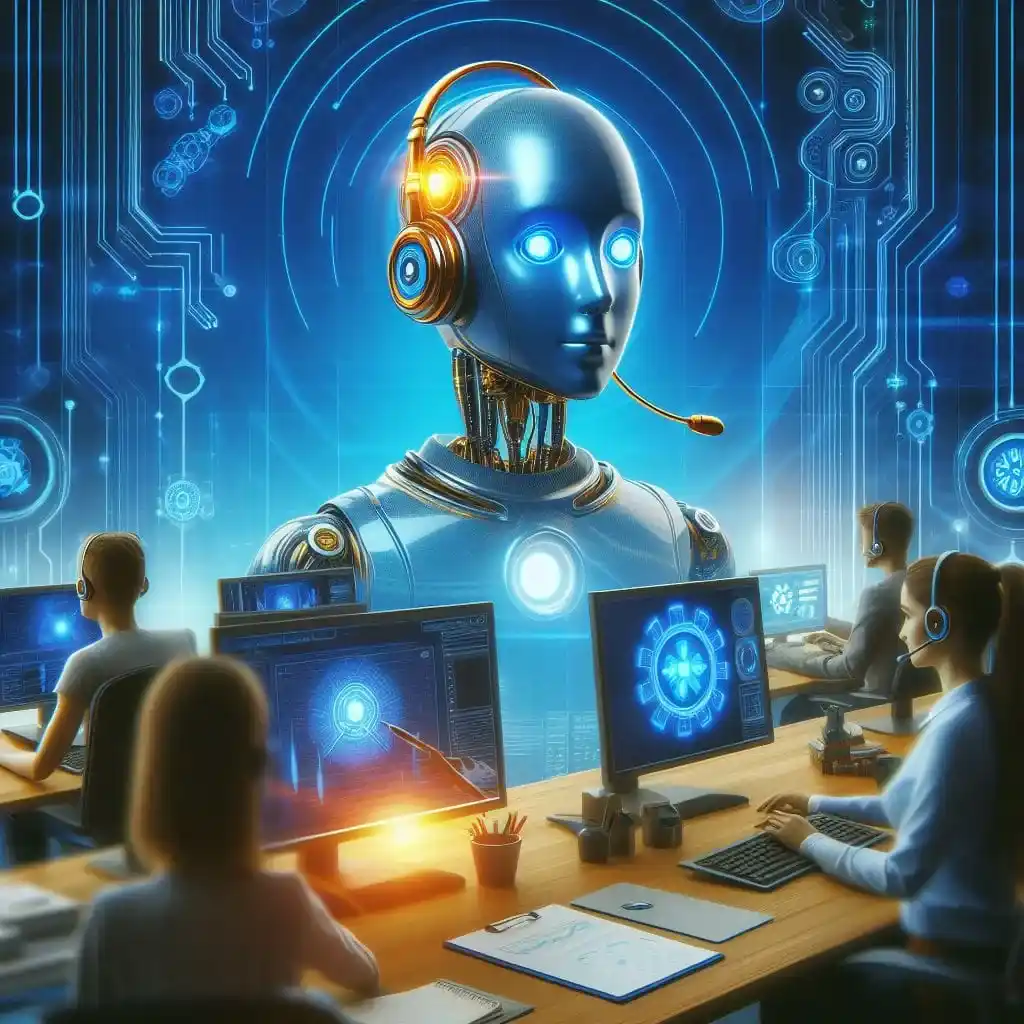The Role of AI in IT Support: How Automation is Revolutionizing Help Desk Support Services

In today’s rapidly evolving technological landscape, the demand for efficient IT support has never been greater. With businesses relying heavily on their digital infrastructure to operate smoothly, any downtime or technical issues can result in significant disruptions and losses. Traditionally, help desk services have been the backbone of IT support, providing assistance to users and resolving issues as they arise. However, with the advent of artificial intelligence (AI) and automation, the role of IT support is undergoing a profound transformation. Interact with IT Support Detroit professionals to leverage AI in IT Support.
In this blog post, we will explore the growing influence of AI in IT support and how automation is revolutionizing help desk services.
Understanding the Evolution of IT Support
Before delving into the impact of AI and automation, it’s essential to understand the evolution of IT support. In the early days of computing, IT support primarily involved manual troubleshooting and assistance provided by human agents. As technology advanced and businesses became increasingly reliant on complex systems, the demand for more efficient and scalable support solutions grew.
The introduction of help desk services marked a significant milestone in the evolution of IT support. Help desks served as centralized points of contact for users seeking assistance with technical issues, streamlining the support process and improving response times. However, traditional help desk services often face challenges such as long wait times, limited availability, and scalability issues.
The Rise of AI in IT Support
Artificial intelligence has emerged as a game-changer in the field of IT support, offering capabilities that were once thought to be the realm of science fiction. AI technologies, such as machine learning and natural language processing, enable systems to analyze vast amounts of data, understand user queries, and provide intelligent responses in real-time.
One of the primary applications of AI in IT support is in the form of virtual agents or chatbots. These AI-powered assistants can handle a wide range of user inquiries and issues, from simple password resets to complex troubleshooting tasks. By leveraging natural language understanding, chatbots can engage in human-like conversations with users, providing personalized assistance and resolving issues efficiently.
Furthermore, AI-powered analytics tools enable IT support teams to gain valuable insights into system performance, user behavior, and common issues. By analyzing patterns and trends, these tools can proactively identify and address potential problems before they escalate, minimizing downtime and improving overall system reliability.
Automation and Streamlined Processes
Automation plays a crucial role in revolutionizing help desk services by streamlining processes and reducing manual intervention. Routine tasks such as ticket routing, incident categorization, and resolution can be automated using AI-driven workflows, freeing up human agents to focus on more complex issues that require human expertise.
For example, automated ticketing systems can intelligently prioritize and assign tickets based on factors such as urgency, impact, and available resources. Automating these repetitive tasks can help desk teams improve response times, enhance productivity, and promptly address critical issues.
Moreover, automation enables proactive monitoring and management of IT infrastructure, reducing the risk of outages and performance issues. AI-driven monitoring tools can detect anomalies, predict potential failures, and initiate remediation actions automatically, thereby minimizing disruptions and maintaining optimal system performance.
Enhancing the User Experience
The integration of AI and automation into help desk services has a profound impact on the user experience. AI-powered solutions enhance user satisfaction and productivity by providing faster response times, personalized assistance, and proactive support.
Chatbots, in particular, offer a convenient and accessible channel for users to seek assistance round-the-clock. Whether it’s during business hours or outside of regular support hours, users can rely on virtual agents to provide instant help and guidance, eliminating the frustration of waiting for human agents to become available.
Furthermore, AI-driven analytics enable help desk teams to gain valuable insights into user needs and preferences, allowing them to tailor support services accordingly. If you want to avoid recurring problems, consult with Managed IT Services Springfield professionals.
Overcoming Challenges and Ensuring Success
While AI and automation offer immense potential for revolutionizing help desk services, organizations must overcome several challenges to ensure successful implementation.
One of the primary challenges is ensuring the accuracy and reliability of AI-powered solutions. Natural language understanding and contextual comprehension are still evolving fields, and AI systems may struggle to interpret complex or ambiguous user queries accurately. Continuous training and refinement are essential to improve the performance of AI algorithms and minimize errors.
Moreover, organizations must address concerns surrounding data privacy and security when implementing AI-driven help desk solutions. User data collected by virtual agents and analytics tools must be handled with the utmost care to prevent unauthorized access or misuse. Implementing robust security measures and compliance protocols is crucial to building trust and confidence among users.
Additionally, organizations must ensure that AI and automation complement, rather than replace, human expertise in IT support. While AI-powered solutions excel at handling routine tasks and inquiries, human agents will always need to address complex issues that require empathy, creativity, and critical thinking.
Conclusion
The role of AI in IT support is rapidly expanding, reshaping traditional help desk services and revolutionizing the way organizations manage and deliver support to users. By harnessing the power of artificial intelligence and automation, help desk teams can improve response times, enhance productivity, and provide personalized assistance to users around the clock.
As organizations continue to embrace AI-driven solutions, it’s essential to address challenges such as accuracy, security, and human-machine collaboration to ensure successful implementation. By leveraging the transformative potential of AI in IT support, organizations can unlock new opportunities for innovation, efficiency, and user satisfaction in the digital age.






